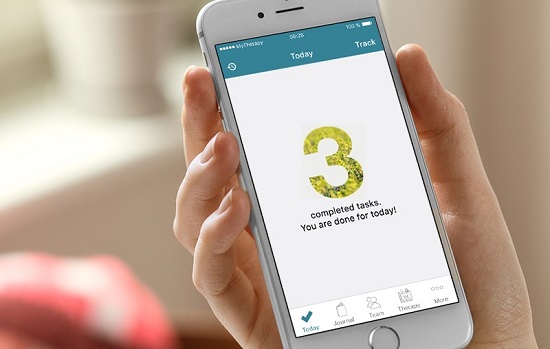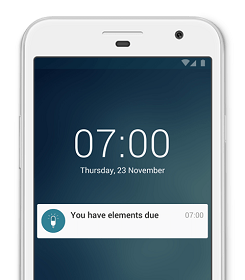Prevention and Treatment of the Zika Virus with a Smartphone Health Tracker App
They Say Prevention Is Better Than Cure. Use MyTherapy to Remind You to Take Preventative Measures When Travelling to Countries Affected by the Virus

The Zika virus is a disease that is mostly transmitted by the *Aedes* mosquito - the same type of mosquito that carries dengue fever and yellow fever. However, it can also be transmitted via sexual intercourse. Over the past few years, there has been an outbreak of the virus in several countries, such as the USA, Brazil, and various islands of the Pacific and Caribbean, including New Caledonia, the Cook Islands, and Easter Island. Fortunately, the virus only causes mild infections, which are not harmful to many people. However, serious complications can occur for pregnant women who become infected with the virus. The virus can cause severe birth defects in babies, including microcephaly and Guillain-Barré syndrome.
There is no specific treatment for the virus, but it is possible to clear the symptoms and recover with rest, hydration, and medication. It is also possible to reduce the risk of infection in the first place by taking several precautions. If you are traveling, it can be difficult to remember to take precautions or adhere to your medication as your daily routine is interrupted on vacation or business travel. Fortunately, several smartphone health apps can help you take preventative measures or support you in your recovery if you happen to become infected with the virus.
MyTherapy was specifically developed to help patients manage their illnesses as effectively as possible. This useful app includes a reminder function, which can be personalized to meet your individual needs while travelling. For instance, it can remind you to use insect repellent every day and to sleep under a bed net to prevent the risk of mosquito bites. The reminder function can also be useful if you have already been infected with the virus, as it can help you adhere to your medication to alleviate your symptoms and remind you to drink plenty of liquids every day. This will invariably speed up your recovery.
Apart from this reminder function, MyTherapy also includes a built-in health diary. With this, it is possible to track your symptoms and necessary health measurements, such as body temperature or weight, over several weeks or months. This information can be compiled into a comprehensive journal and shared with your doctor in order for him/her to get an overview of your health, decide whether the symptoms are improving, and conduct further investigations if necessary (especially if you are pregnant).
The app is easy to understand and simple to use for people of every age. It is constantly being developed through user feedback, which ensures that it has a user-friendly layout and includes functions that will greatly benefit patients. This makes MyTherapy an ideal tool for for managing Zika in terms of both preventing and treating an infection it if it is too late.
A Brief History of the Zika Virus
The Zika virus is mainly transmitted through mosquitoes, but it can be sexually transmitted too. A mosquito bites an infected person and then passes the virus on to other people it bites. The virus was first discovered in 1947 in Uganda and gets its name from the Zika Forest. Before 2007, there were not many human cases of Zika infections and outbreaks did not occur outside of Africa until 2007 when it spread to the South Pacific. Since then, large outbreaks have also been reported in Brazil and the Americas. A list of countries that are currently affected by the virus can be found here.
Symptoms, Complications, and Pregnancy
The symptoms of Zika virus are similar to other mosquito-borne infections. They include:
- Fever
- Skin rashes and itching
- Muscle and joint pain
- Headaches
- Pain in the lower back and behind the eyes
- Conjunctivitis
- Flu-like symptoms
The symptoms are relatively mild and last for around two to seven days. Symptoms can appear anywhere from three to 14 days after infection. Many people don’t experience any symptoms at all. Generally, an infection with the virus is not severe enough for hospitalization.
That being said, there are severe risks associated with a Zika virus infection in pregnant women. The virus can cause microcephaly in babies born to infected pregnant women. Microcephaly can cause fatal brain damage or result in miscarriage or stillbirth. It can also lead to delays in the development of speech and movement. In Brazil alone, more than 2,100 babies were born with microcephaly or other birth defects linked to Zika.
In addition to its link to microcephaly, Zika also appears to cause Guillain-Barré syndrome (GBS). This is an uncommon but serious autoimmune disorder of the central nervous system where the body attacks the nerves. It is therefore advised that if you are pregnant, you should not travel to any countries affected by the virus. If you do happen to live in one of these countries, then doctors recommend that you try and delay pregnancy until the virus is contained.
If you believe you have contracted the Zika virus, you should contact your GP as soon as possible. He or she will do a physical examination, ask about your recent medical and travel history, and decide whether further investigations will be necessary. The diagnosis can be confirmed through laboratory tests such as blood tests, a urine test, or saliva tests.
Transmission and Taking Precaution
The Zika virus is mostly transmitted through bites from infected mosquitoes. It is also possible for Zika to be transmitted through sexual intercourse. Other modes of transmission, for example blood donation, are currently being investigated.
There are several precautions you can take to prevent an infection. These include:
- Using insect repellent
- Sleeping under a mosquito net
- Wearing clothes that cover your arms and legs
- Using condoms or abstaining from sex
Rest, Fluid, and Medication
There is no specific medicine or cure for the Zika virus. However, it is possible to treat the symptoms and recover quickly. If you are infected, you should get lots of rest and drink plenty fluids to prevent dehydration. You can also take over-the-counter medicines to reduce the fever and pain. However, it is important that you discuss any drug treatment with your GP, particularly if you are taking medication for a different condition. If you do not recover and symptoms worsen, you should talk to your doctor immediately.
Enjoy Your Travels with MyTherapy
Although the symptoms of the Zika virus are mild and you can recover within a week or so, the virus can be detrimental to the health and development of unborn babies. For this reason, it is necessary to prevent transmission in the first place or, if unsuccessful, promote a rapid recovery by getting rest and drinking fluids. However, adhering to schedules for taking medication or remembering to take small preventative measures can be difficult, especially in the chaos and excitement of travelling. The app MyTherapy can offer you support in this regard. For example, the app’s reminder function can remind you to use insect repellent consistently during your travels. If an infection has already occurred, the reminder function will help you take in the optimal amount of fluid and medication to promote a quick recovery. In addition to the reminder function, MyTherapy also features a health diary, which makes it possible for you to track your symptoms and discuss them with your doctor should you feel like you are not getting better. Your doctor can use the information of the health diary to gain a reliable overview of your condition, adjust your treatment plan, and decide whether further investigation is necessary. Together, these features make MyTherapy a valuable tool in managing and preventing the Zika virus.


